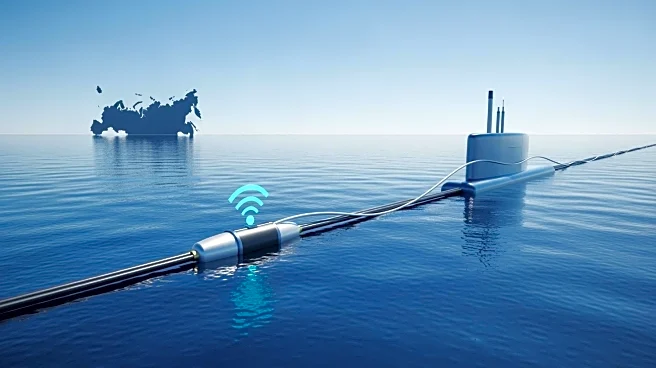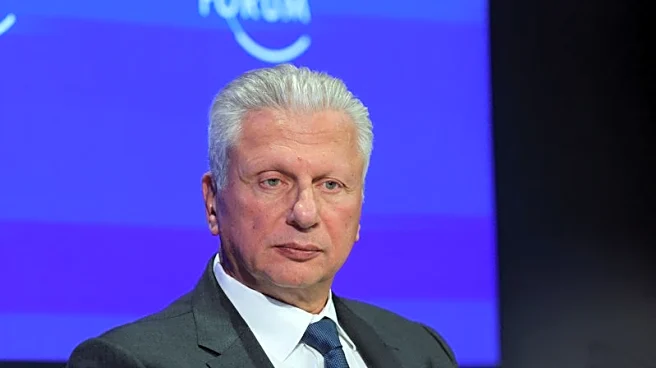What's Happening?
Vodafone Group and Vodafone Ukraine have announced plans to construct a new submarine cable system, named Kardesa, across the Black Sea. This €116 million project aims to connect Bulgaria, Georgia, Turkey,
and Ukraine, deliberately excluding Russia. The cable is expected to provide an additional 500 Tbps of capacity to the region, addressing the limitations of existing infrastructure. The construction is being undertaken by Xtera, with the first landing anticipated in Bulgaria by 2027. This initiative is part of a broader strategy to establish Ukraine as a key hub for internet traffic between Europe and Asia, bypassing Russian territory.
Why It's Important?
The development of the Kardesa cable is a strategic move to enhance internet connectivity in the Black Sea region while reducing reliance on Russian infrastructure. This project is significant for Ukraine, as it seeks to position itself as a central player in the digital connectivity landscape between Europe and Asia. By providing an alternative route for internet traffic, the cable could improve regional internet speeds and reliability, benefiting businesses and consumers. The geopolitical implications are also noteworthy, as the project reflects ongoing efforts to diversify internet infrastructure in response to regional tensions.
What's Next?
The construction of the Kardesa cable is expected to proceed with the first landing in Bulgaria by 2027. As the project progresses, it may face regulatory and security challenges due to the geopolitical sensitivity of the region. Stakeholders, including governments and telecom companies, will likely monitor the project's impact on regional connectivity and its potential to shift internet traffic patterns. The success of this initiative could encourage further investments in similar infrastructure projects, promoting greater digital independence and resilience in the region.










